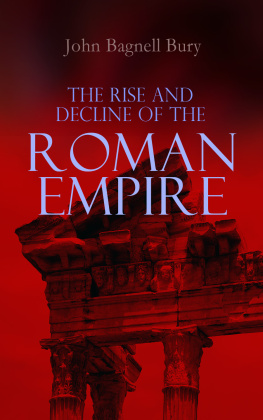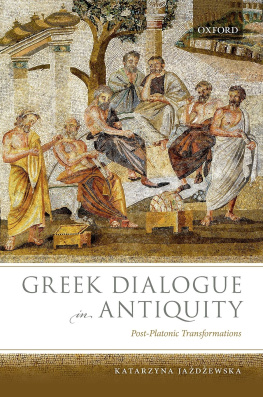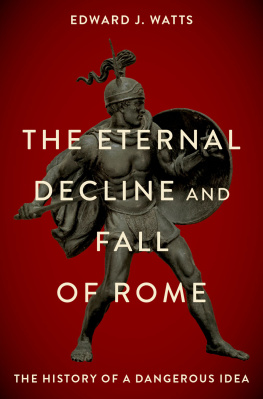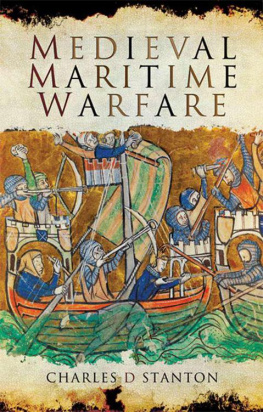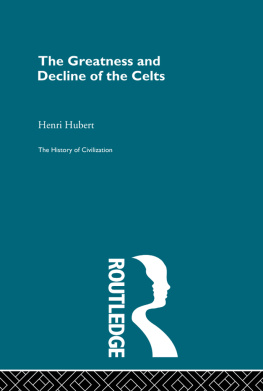Routledge Revivals
A History of Europe
First published in 1931, this book covers the broad period of time between the beginning of the Christian Roman Empire in the fourth century and the Renaissance. The author traces the key points of medieval history striking a balance between political, institutional, social and cultural history with no event of major importance escaping recognition. In addition to covering medieval Europe in detail, it also includes sections on the Byzantine Empire and the foundation of Islam. Many maps are also included to geographically illustrate essential facts. This book will be of interest to students of history.
A History of Europe
From 1378 to 1494
W.T. Waugh
First published in 1932
by Methuen
This edition first published in 2016 by Routledge
2 Park Square, Milton Park, Abingdon, Oxon, OX14 4RN
and by Routledge
711 Third Avenue, New York, NY 10017
Routledge is an imprint of the Taylor & Francis Group, an informa business
1932 W.T. Waugh
All rights reserved. No part of this book may be reprinted or reproduced or utilised in any form or by any electronic, mechanical, or other means, now known or hereafter invented, including photocopying and recording, or in any information storage or retrieval system, without permission in writing from the publishers.
Publishers Note
The publisher has gone to great lengths to ensure the quality of this reprint but points out that some imperfections in the original copies may be apparent.
Disclaimer
The publisher has made every effort to trace copyright holders and welcomes correspondence from those they have been unable to contact.
A Library of Congress record exists under LC control number: 32031346
ISBN 13: 978-1-138-65897-4 (hbk)
ISBN 13: 978-1-315-62046-6 (ebk)
ISBN 13: 978-1-138-65898-1 (pbk)
A HISTORY OF EUROPE
FROM 1378 TO 1494
BY
W.T. WAUGH
LATE KINGSFORD PROFESSOR OF HISTORY IN MCGILL UNIVERSITY
WITH FOUR MAPS
THIRD EDITION
First Published... September 22nd 1932
Second Edition... November 1943
Third Edition... 1949
CATALOGUE NO. 4353/U
PRINTED IN GREAT BRITAIN
PREFACE
I N accordance with the general plan of the series to which this volume belongs, I have noticed English affairs only when they had a direct bearing on the fortunes of the European continent. But, since this is, after all, an English book, particular attention has been given to those peoples who have most influenced the English-speaking nations of today.
I owe thanks to many friends for their help notably to Professor Edward Fiddes, of the University of Manchester, and Mr. V. H. Galbraith, Reader in Diplomatic in the University of Oxford, who read my proofs and offered valuable and welcome criticism. Without the constant aid of my wife, this book would never have been completed.
W. T. W.
MONTREAL
April, 1932
NOTE TO THIRD EDITION
The bibliographies have been revised and brought up to date by Miss Margaret Seymour of the Department of History, University of Manchester.
CONTENTS
Traditional view of the fifteenth century; decline of medieval institutions; political conditions; rise of nationalism; growing strength of the middle class; learning, art, and geographical discovery
Accession of Charles VI; his uncles; widespread unrest in France; the Maillotins; suppression of risings; rebellion in Flanders; Philip van Artevelde; battle of Roose-beke; further government reprisals; crusade of Bishop Despenser; succession of Philip the Bold to Flanders; misgovernment in France; Charles VIs coup dtat; his madness; rivalry of Burgundy and Orleans; France and Pope Benedict XIII; further civil dissension; death of Philip the Bold; John the Fearless; murder of Louis of Orlans
Burgundians and Armagnacs; civil war; meeting of the Wes-General; the Cabochians; their defeat; civil war renewed; negotiations with Henry V; France invaded; battle of Agincourt; confusion in France; mediation of King Sigismund; France again invaded; Bur-gundian successes against Armagnacs; capture of Rouen by Henry V; attempted reconciliation of French parties; murder of John the Fearless; the Treaty of Troyes; Armagnac resistance; Normandy under the English; battle of Baug; siege of Meaux; deaths of Henry V and Charles VI; John, Duke of Bedford; conditions in Northern France; Charles VII and his counsellors; battle of Verneuil; embarrassments of Bedford; Humphrey Duke of Gloucester; siege of Orlans
Early Life of Joan of Arc; Joan at Chinon and Poitiers; progress of the siege of Orlans; Orlans relieved; battle of Patay; coronation of Charles VII; Joans capture, trial, and death; continued confusion in France; the Treaty of Arras; Paris taken for Charles VII; stubborn resistance of the English; plots against Charles VII; the corcheurs; increase of royal power; truce with England; creation of a standing army; conquest of Normandy; conquest of Guienne; the battle of Castillon; Charles VIIs mistresses and advisers; his methods of government; his relations with the Dauphin; his foreign and ecclesiastical policy; rehabilitation of Joan of Arc
Political conditions in Germany; King Wenzel; strife between the princes and the cities; Wenzels unpopularity; his troubles and mistakes; his deposition; King Rupert; his Italian expedition; confusion in Germany; Rupert and the Council of Pisa
Condition of the Church in 1378; election of Urban VI and of Clement VII; division of Europe; policy of Clement; policy of Urban; his violence; Boniface IX; attempts to end the Schism; rival schemes in the University of Paris; Benedict XIII; withdrawal of French obedience from Benedict; his obduracy; French obedience restored; Innocent VII; new breach between Benedict and the French; Gregory XII; his fruitless negotiations with Benedict; neutrality of France declared; rebellion of the cardinals; General Councils summoned; the Council of Perpignan; the Council of Pisa; Alexander V and John XXIII; Council of Rome; the city captured by Ladislas of Naples
Disputed election to the Crown; Sigismunds second election; his character; his policy in Germany; Sigis-mund in Italy; in France and England; his troubles in Germany and Bohemia; Sigismund crowned Emperor; his last years
The Council opened; its size and significance; attitude towards Hus and the Papacy; organization; conflict with John XXIII; deposition of John and abdication of Gregory XII; effect of Sigismundo absence; the Capitulation of Narbonne; dissensions in the Council; deposition of Benedict XIII; dispute concerning the papal election; election of Martin V; reforms and Concordats
Aims and policy of Martin V; the Council of Pavia transferred to Siena; failure of the Council; Martin V and the Council of Basel; the Council opened; its first conflict with Eugenius IV; the Hussites at Basel;organization and policy of the Council; the Council and the Eastern Church; renewed strife between the Council and the Pope; the Council split; the Council of Ferrara-Florence; Eugenius IV suspended and deposed by the Council of Easel; election of Felix V; the Council transferred to Lausanne and dissolved
Bohemia in the fourteenth century; advocates of religious reform; early life of Hus; Hus and Wycliffe; religious disputes; secession of Germans from Prague University; Hus excommunicated; mediation of King Wenzel; dispute over indulgences; Hus at the Council of Constance; effects of his death in Bohemia; Hussite divisions; death of King Wenzel; opposition to Sigismund; the Four Articles of Prague; John Zizka; battles of Saaz and Kuttenberg; civil war in Bohemia; Zizkas death; Procop the Great; Hussite victories at Aussig and Mies; the Hussite offensive; a crusade routed at Tauss; the Hussites invited to Basel; their negotiations with the Council; growing divisions among them; battle of Lipan; the Compacts of Prague signed at Iglau; Sigismund accepted as King of Bohemia


